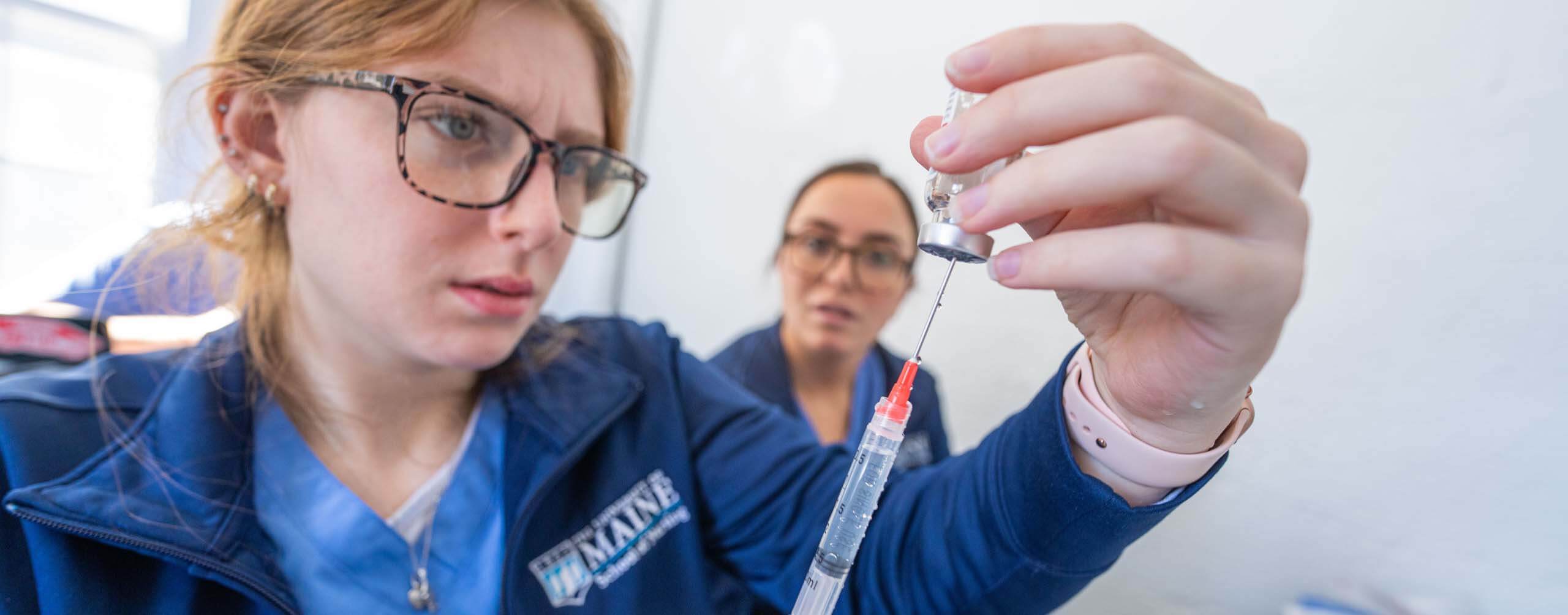
Nursing
College of Earth, Life, and Health Sciences
The University of Maine’s School of Nursing prepares future nurses for the intricate and diverse global health care system. The goal of this program is to prepare a professional generalist practitioner of nursing who can assist individuals, families and groups to achieve and maintain optimal health, and be able to work in a variety of health care settings.
The Nursing Program prepares students for the vast and forever changing world of health care. Nursing students are taught by nurses who are experts in their specific field and are also skilled educators. In the classroom, practice laboratories and clinical settings, students are challenged to base their nursing care on the best available evidence and to critically analyze their practice, always striving for optimal outcomes for patients, families and communities.
Students gain a deeper understanding of what to expect in the field. Nursing courses begin in the first semester and focus on health promotion and disease prevention through the lifespan, preparing students to provide evidence-based, safe, effective nursing care in a variety of settings. Students are able to gain clinical experiences in acute-care facilities such as: Northern Light Eastern Maine Medical Center, St. Joseph’s Hospital, Dorothea Dix Psychiatric Center, Northern Light Acadia Hospital, as well as other hospitals and skilled and long-term care facilities around the state, including rural community hospitals.
UMaine nursing students benefit from faculty who are expert nurses in their areas of specialization in addition to being skilled educators and scholars.
The nursing program also offers community based experiences which is great for making connections and is offered through affiliations with numerous local and rural community health agencies, schools, specialty clinics such as pediatric and maternal health, and occupational health settings. Student community-based leadership projects may include such diverse areas as CPR classes for teachers, health resources for veterans and the homeless population, disaster preparedness for children and families, and health teaching in correctional facilities. Hands on experiences are highly valued and appreciated.
Nursing students are also offered a variety of opportunities, such as the Orono Student Nurses’ Association (OSNA). OSNA is a student-run organization which engages students in community service projects, fosters professional development through informative programs, promotes leadership in state and national health care forums, and provides peer mentorship for nursing students. Another opportunity students have is UMaine Nursing International. This combines combines cultural competency and nursing skills to allow Nursing students to visit a foreign country and provide care to areas that have underserved populations.
Nursing
College of Earth, Life, and Health Sciences
Dunn Hall
207.581.2592
